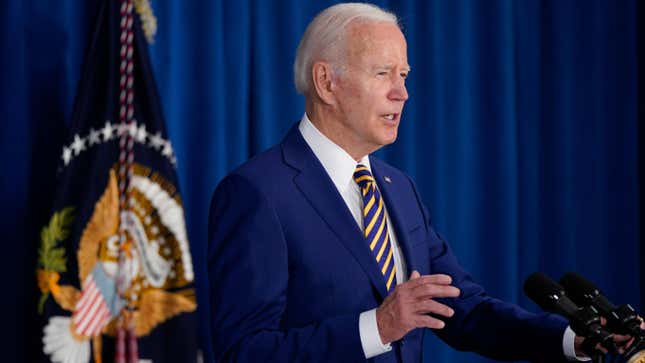
We are always going to celebrate Black music because that’s just what we do on a daily basis, but President Joe Biden issued a proclamation early this week officially recognizing June as Black Music Appreciation Month.
Despite some of the questions I may have about Biden, there’s one thing I do agree with him: “Perhaps no music has had as profound and powerful an impact in shaping America’s musical score as Black music,” Biden said in the proclamation.
He continued, “Intricately woven into the tapestry of our Nation, Black music enriches our lives and pushes the boundaries of creativity. Throughout the decades and across the country, Black music has fueled a myriad of genres — from rhythm and blues to jazz, gospel, country, rap and more.
I don’t think I’ve ever heard Biden speak truer words.
While Black music has continued to change over the decades, one thing has remained consistent, it shares the “hopes and struggles of a resilient people.”
Whether that’s the sound of Motown during the civil rights movement or the hip hop and rap that was inspired by the Rodney King riots. Black music has always been used as a tool for journalism to convey what is going on in the Black community.
As Lil Wayne said in a 2008 interview, “I believe that music is another form of news. Music is another form of journalism to me, so I have to cover all the areas.”
Sometimes that can be turning up and having fun, and other times it can touch on the negative things going on in our communities that need to be changed.
Former President Jimmy Carter is credited with creating the appreciation month in 1979, according to the National Museum of African American History and Culture.
When he created it then, Carter said it “celebrates the African American musical influences that comprise an essential part of our nation’s treasured cultural heritage.”
The appreciation month is reestablished every year by a presidential proclamation, according to the NMAAHC.

